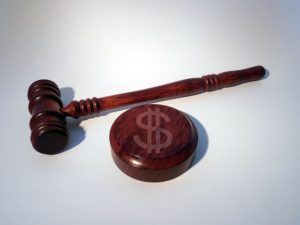Gambling winnings not taxable in Canada; casino tips are, agrees appellate court.
 If you’ve ever worked in the hospitality industry, you know how important tips are to your overall income. Whether you’re a part-time waitress or a hotel bellhop pulling minimum wage, or a fancy sommelier at a celebrity chef restaurant, tips tend to make up a notable portion of your income. No matter how much you earn in gratuities, they do count as income, and therefore must be claimed as such when filing taxes.
If you’ve ever worked in the hospitality industry, you know how important tips are to your overall income. Whether you’re a part-time waitress or a hotel bellhop pulling minimum wage, or a fancy sommelier at a celebrity chef restaurant, tips tend to make up a notable portion of your income. No matter how much you earn in gratuities, they do count as income, and therefore must be claimed as such when filing taxes.
Cheng Xai, a long-time slot machine attendant at BC, Canada’s Grand Villa Casino, is well aware of that. Yet, he failed to report a rather significant amount of tips on his taxes in 2011 and 2012. The Canada Revenue Agency wasn’t too happy about it, but Xai, who happens to have a rather unique background in tax law, was confident in his right to keep the money. Unfortunately for him, Justice Yves de Montigny of the Federal Court of Appeals, did not agree.
Gambling Winnings Not Taxable in Canada; Casino Tips Are
Cheng Xai’s argument rested solely on the fact that the Canadian government does not tax gambling winnings. Therefore, if the tips he received were derived from gambling winnings – in this case, from slot machine jackpot payouts that he assisted with as part of his duties as a slot attendant – it was his belief that he did not have to pay taxes on them.
Xai argued that the tips he had received were a “source or category of jackpot winnings”.
While it is true that gambling winnings are not taxed in Canada, the original judgment in the case, handed down by Judge Campbell, determined that Xai’s tips were not gambling winnings.
“To the casino patron who wins a jackpot, his or her winnings will not be taxable,” noted Judge Campbell in the initial ruling. “However, when part of those winnings are paid over to an employee of a casino as a thank-you or in appreciation of the services the patron receives, the nature of that amount changes from being non-taxable to a taxable amount in the hands of the employee.”
Judge Campbell did recognize Cheng Xai’s elevated awareness of Canadian tax laws, describing him as “a highly intelligent and well-educated individual.” Prior to becoming a slot attendant, court documents state he was employed as an insurance agent and mutual funds agent assisting clients with investment, tax and other financial advice. However, she added that he also “displayed a dismissive and indifferent attitude toward the reporting of these tip amounts without regard to the potential consequences.”
Cheng Xai was found guilty of gross negligence and ordered to pay a fine of $8,411.
Appellate Court Upholds Original Ruling
An appeals court agreed with the original assessment, stating that the gambling winnings became taxable the moment they left the gambler’s hands, and entered that of the casino employee as gratuity for his service.
“It is clear that the evidence supports a finding that the appellant was liable for willful blindness and gross negligence,” concluded Justice Yves de Montigny.
The ruling was based largely on the court’s interpretation of the following Canadian tax laws.
Canada Gambling Tax Law
The Canada Revenue Agency devotes an entire section of its tax code to Gambling Profits, wherein it states:
| “1.12 An individual’s gambling activities may result in taxable business income…if the gambling activities constitute a source of income (that is, carrying on the business of gambling).” |
This section of the CRA’s guidelines delves into much greater detail, but the generally concept is that gambling are not taxable, unless conducted by a professional gambler, such as a professional poker player or anyone else whose majority income is acquired from “regular, frequent and systematic gambling”.
Canada Gratuity Tax Law
Under the Basic Rules of Income or Loss from an Office or Employment, Canada’s Income Tax Act, Subdivision A, 5 (1), states:
| “…a taxpayer’s income for a taxation year from an office or employment is the salary, wages and other remuneration, including gratuities, received by the taxpayer in the year.” |
Furthermore, under amounts to be included as income from office or employment, the Act lists value of benefits to be declared:
| “…benefits of any kind whatever received or enjoyed by the taxpayer…in the course of, or by virtue of the taxpayer’s office or employment…” |





